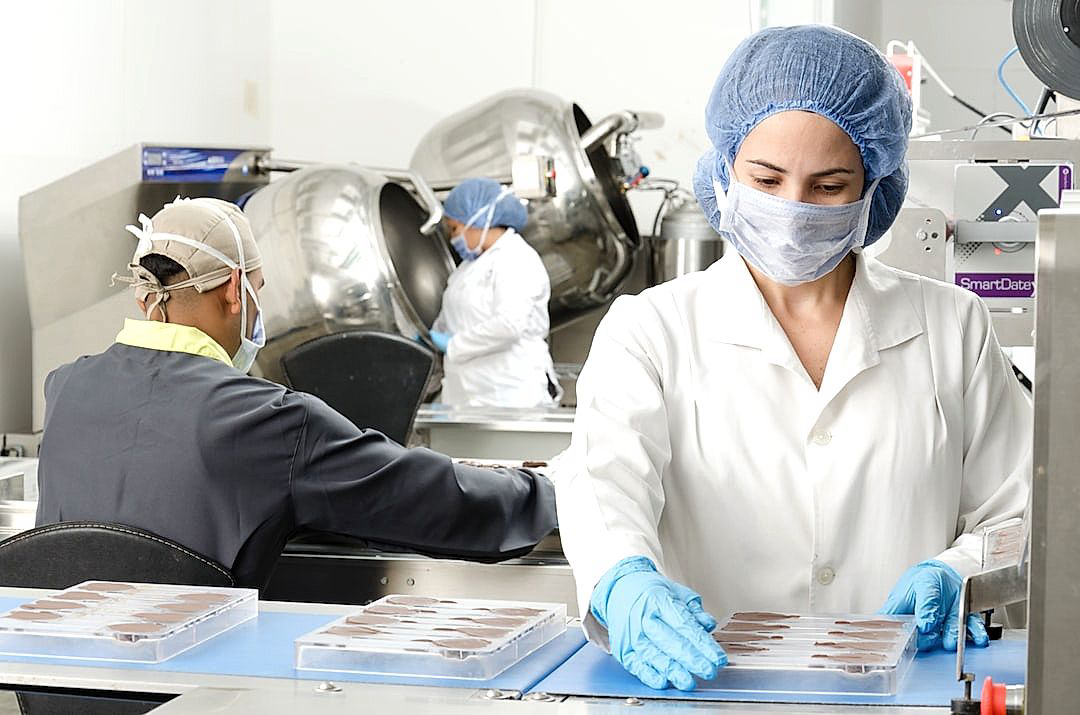Agriculture undeniably involves a profound connection between land and water.
With increasing global demands for food, efficient and sustainable farming practices are crucial.
Central to these practices is the quality of water used in agricultural activities.
Ensuring pristine water quality is not just a matter of fulfilling environmental regulations—it necessarily impacts the growth, yield, and safety of produce.
This introduces a unique set of challenges and opportunities for produce farmers.
In the following sections, we will delve into the importance of water quality initiatives for the farming industry, highlighting key strategies and their associated implications.
Contents
Water Quality Initiatives Essential For Produce Farming
1. Strict Water Testing and Purification Procedures
The first step in ensuring water quality in produce farming is implementing strict water testing and purification procedures.
These procedures serve a dual purpose as they not only maintain the health of crops but also safeguard the quality of the consumed produce, ultimately protecting public health.
Ineffective or lacking water testing can lead to the spread of harmful pathogens and pollutants, which can infest crops and cause widespread damage.
As such, incorporating rigorous water testing and purification measures is of utmost importance in maintaining the health and quality of produce, as well as preventing potential public health crises.
Water quality tests comprise several variables like temperature, pH, turbidity, and bacterial content.
To ensure the most accurate results, specialists should conduct these tests on a regularly scheduled basis.
The frequency of these tests may vary depending on the specific needs of the farm, environmental factors, and local regulations.
This diligence will not only ensure the plant’s health but also minimize any potential risks and contaminants that might affect the quality of the produce.
However, testing alone is insufficient, a robust purification process should complement it.
Water purification methods, such as flocculation, filtration, and disinfection, can effectively eliminate most harmful substances.
It’s also crucial to constantly keep these purification systems on par with the latest technology advancements.
This implies periodically upgrading equipment, adopting new procedures, and staying on top of industry trends.
Remember that every drop of water that hydrates the crops potentially affects the quality of the final produce that reaches the market.
Thus, every effort to improve and maintain water testing and purification procedures impacts the overall success of the produce farming industry.
In order for this success to be sustainable, we must approach water quality with the seriousness it warrants, dedicating the necessary resources, attention, and commitment to continuous improvement.
2. Efficient Irrigation Management Systems
The task of maintaining optimal water quality in produce farming greatly depends on the efficiency of the irrigation management systems.
There’s a growing need for modern, efficient and sustainable irrigation systems to not only conserve water but also to prevent the contamination of produce.
Irrigation systems must be designed and managed in a way that they provide the right amount of water at the right time, thereby reducing wastage and ensuring healthy produce.
The application of digital technologies such as sensors, automated systems and Artificial Intelligence can significantly enhance the efficiency of irrigation systems.
Such technologies can measure soil moisture levels in real-time, adjusting irrigation as necessary and thus optimizing water use.
Irrigation strategies like drip irrigation and precision irrigation have been heralded as highly efficient, as they deliver water directly to the roots of the plant, reducing wastage and contamination possibilities.
They can also minimize the contact of water with the edible parts of the crop, thereby reducing the chances of contamination from possible pathogens in the water.
Research shows that efficient irrigation systems can significantly lower the levels of contaminants such as nitrates in produce farming.
Produce farms using inefficient irrigation methods often exhibit greater quantities of contaminants in their produce, making them less safe for consumption.
There’s a need to continually monitor and maintain irrigation systems to ensure their efficiency.
Developing an irrigation schedule, conducting regular system audits and promptly repairing leaks are crucial steps in achieving this goal.
It’s imperative that growers have an understanding of water needs at different growth stages of the crop for better irrigation scheduling.
Equally important is the need to understand regional climate patterns, as they greatly influence irrigation requirements.
Implementing efficient irrigation management systems is a significant step towards improving water quality in produce farming and should be considered a priority by growers.
Through adopting effective management systems, growers can ensure the long-term sustainability of their farms while improving water quality and safety of their produce.
3. Responsible Wastewater Disposal Methods.
Wastewater management is a critical component of any comprehensive water quality initiatives, particularly in produce farming.
Due to the nature of their operations, produce farms generate considerable amounts of wastewater from activities like irrigation, cleaning, and processing of fresh fruits and vegetables.
The challenge is in ensuring that this wastewater is responsibly disposed of such that it doesn’t contribute to water pollution or threaten the very quality of water used in cultivation.
There exist several key strategies that can facilitate more responsible wastewater disposal in produce farming.
At its most basic, wastewater should be collected and removed from production areas promptly to minimize the risk of contamination.
Moreover, in many regions, regulations require that wastewater from agricultural activities be treated before disposal.
This can be achieved through the use of physical, chemical, or biological treatment methods, each suited to addressing particular contaminants present within the wastewater.
Physical treatment options typically involve filtration or sedimentation processes to remove solid particles from the water.
Conversely, chemical treatment techniques might include processes such as disinfection or coagulation to neutralize harmful substances in the wastewater.
On the other hand, biological treatment tends to leverage microbes to degrade organic pollutants in the water, a process that can be particularly useful for wastewater from organic farms.
Notably, the choice of treatment method often depends on various factors including the type and level of contaminants present in the wastewater, regulatory requirements, and cost considerations.
Once treated, the disposal of wastewater needs to be conducted in a manner that ensures the treated water does not seep into freshwater sources or negatively impact the surrounding environment.
In many cases, this might involve discharging the water into municipal sewer systems or bodies of water such as rivers and seas, subject to local regulatory compliance.
Alternatively, the treated water can be reused within the farm, say for irrigation, providing an additional water source and promoting water sustainability.
Regardless of the method employed, regular monitoring is critical to ensure ongoing compliance with wastewater disposal regulations and maintain the effectiveness of the wastewater management system.
Ultimately, responsible wastewater disposal is not just about meeting regulatory requirements but also about preserving the integrity of the water resources upon which the produce farming industry depends.
The Bottom Line
Ensuring the long-term sustainability of our water resources demands continuous commitment to rigorous testing and purification processes, as well as the implementation of efficient irrigation management systems.
To further safeguard these vital resources, we must also demonstrate responsible wastewater disposal practices.
The intersection of these initiatives not only underscores the importance of integrated water management, but also provides a route towards sustainable water usage.
Therefore, it is crucial we make every effort to uphold these strategies, for they significantly contribute towards meeting our present water needs while also protecting future supplies.




